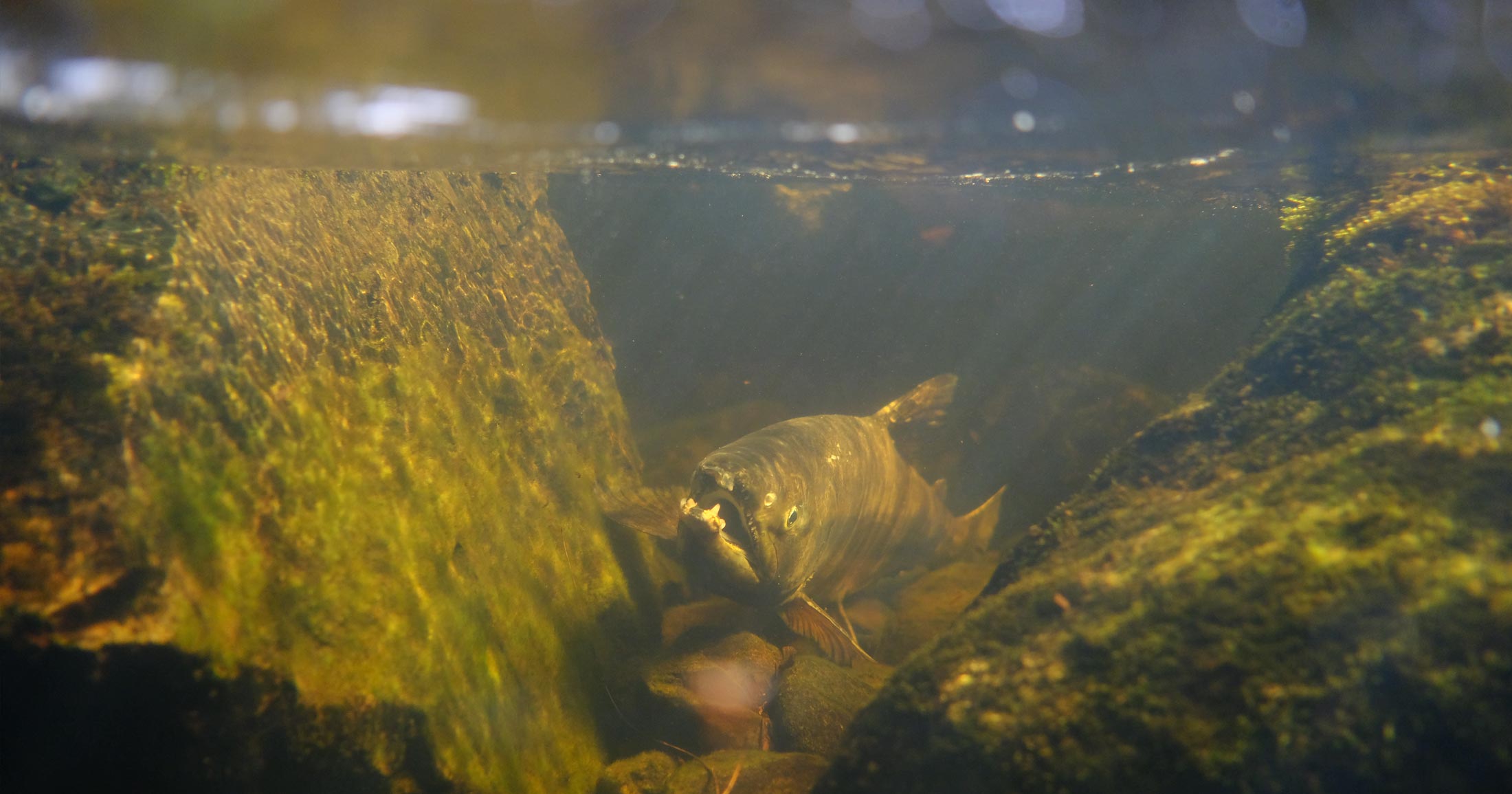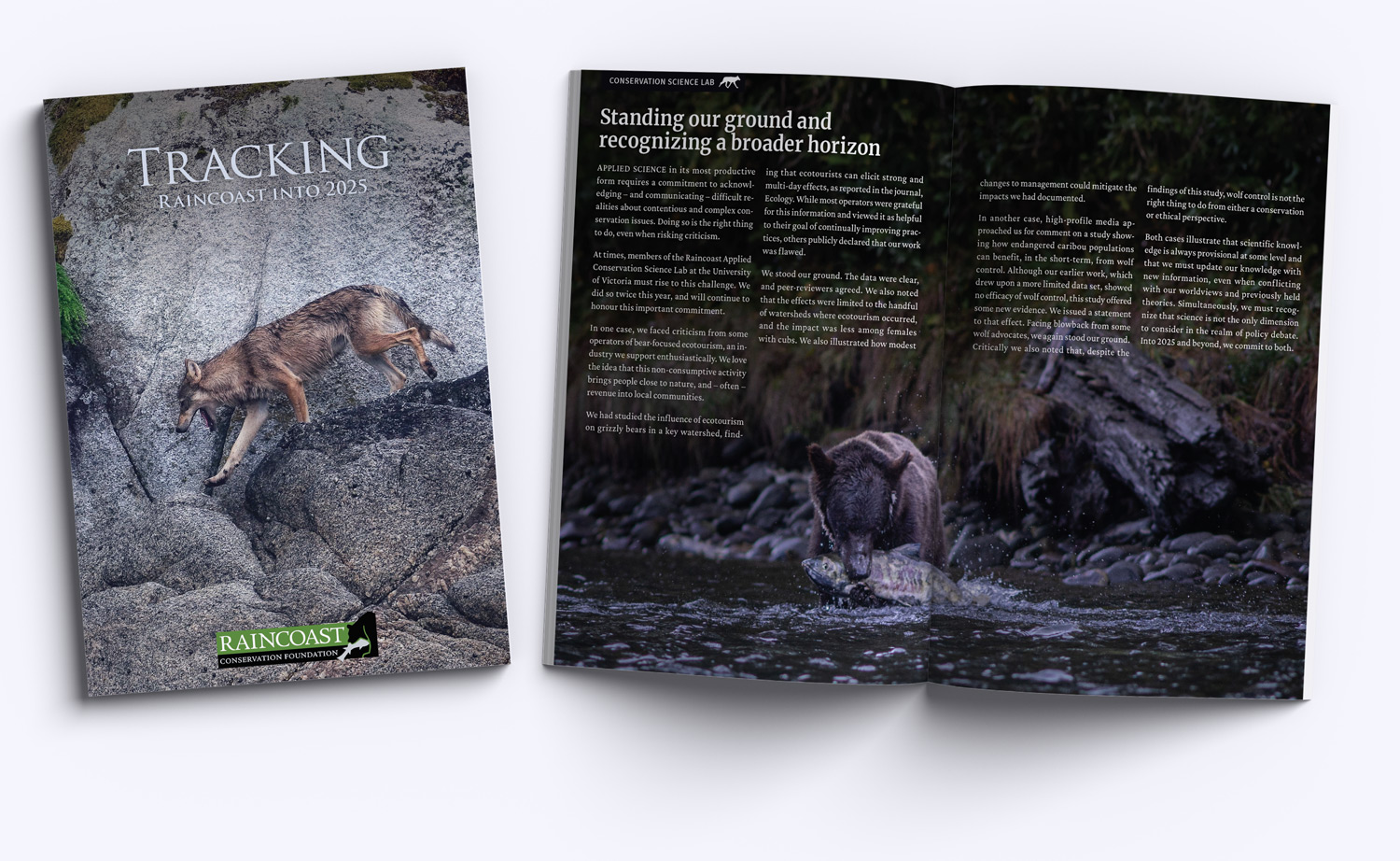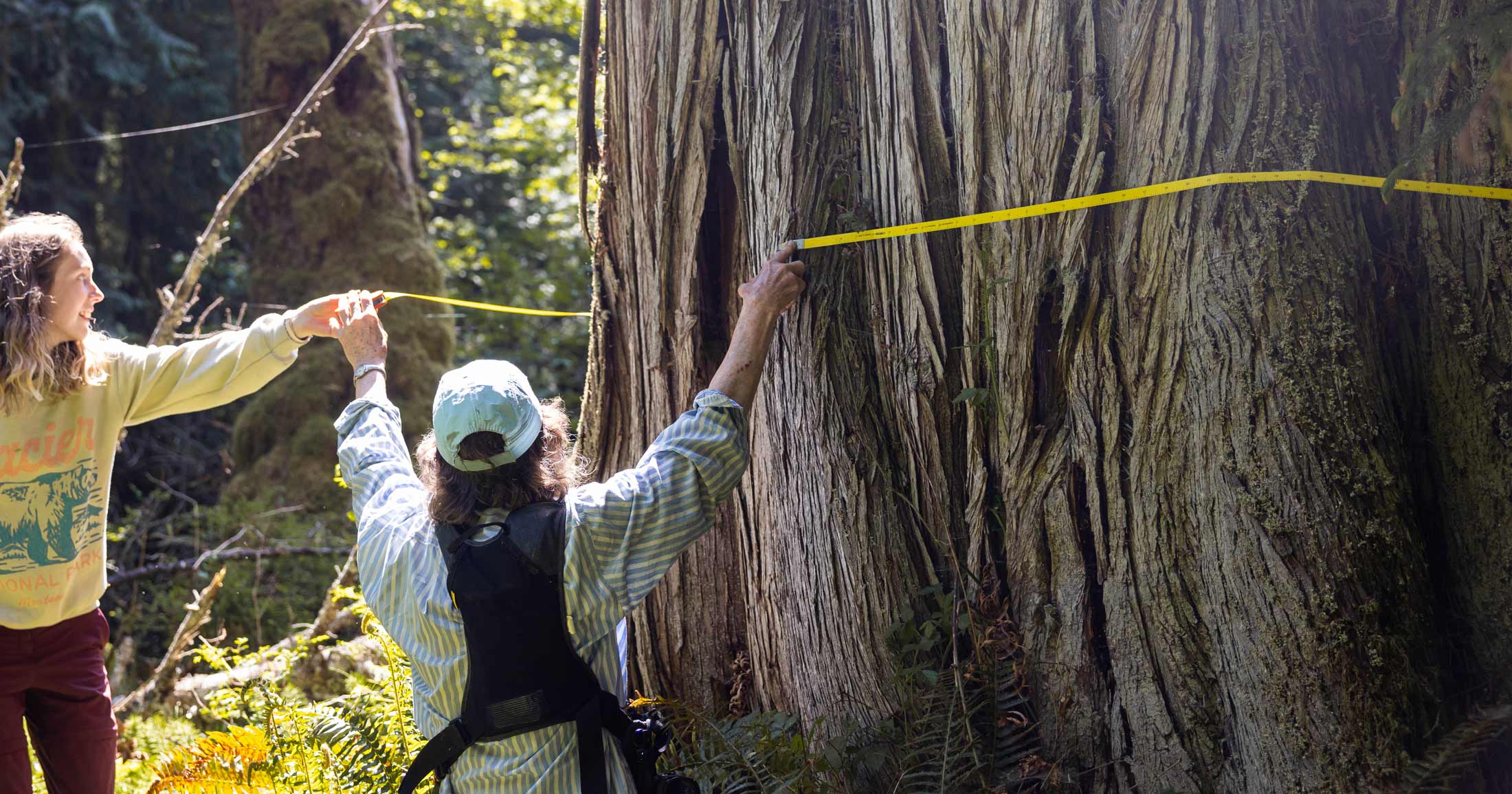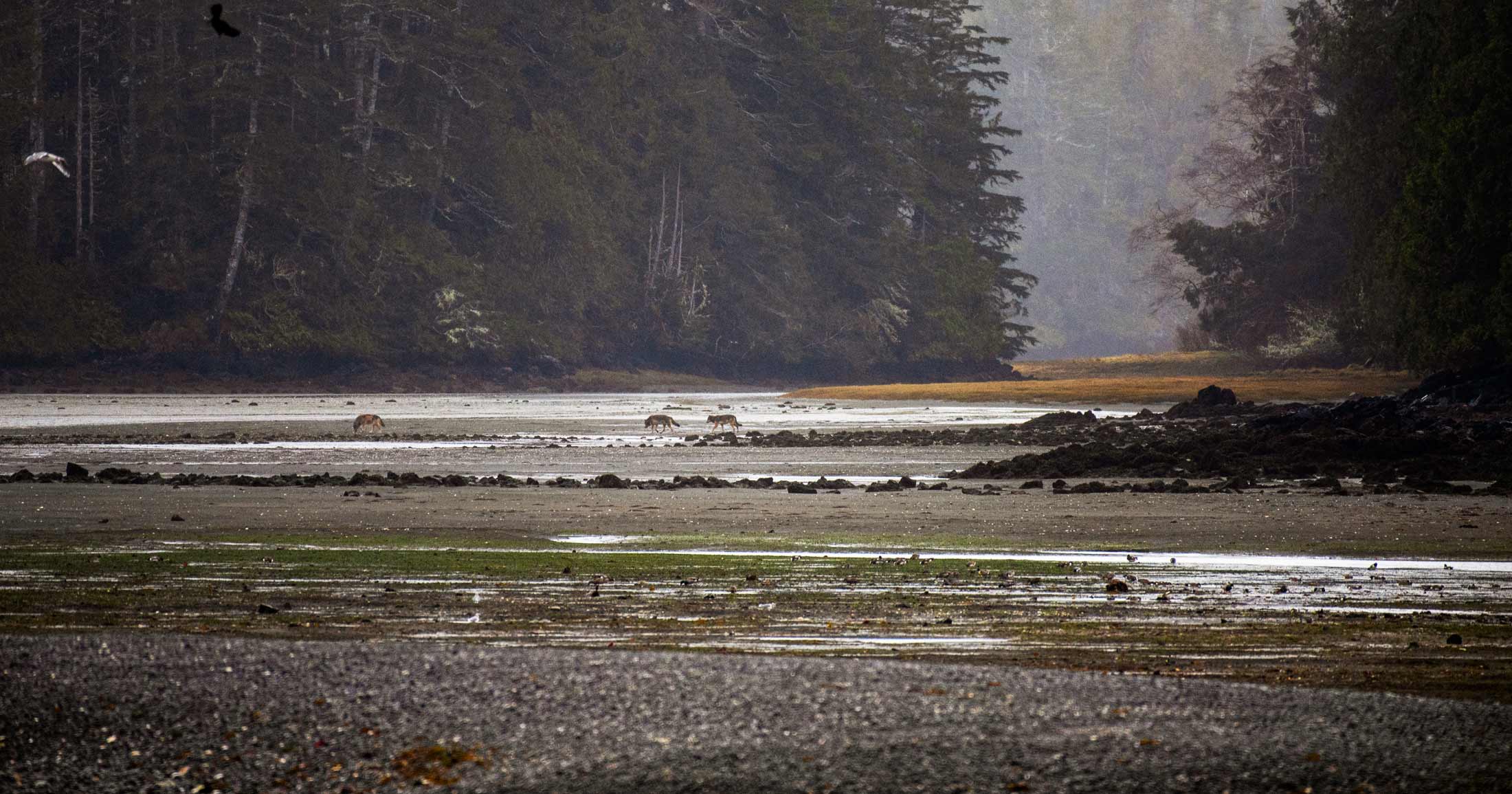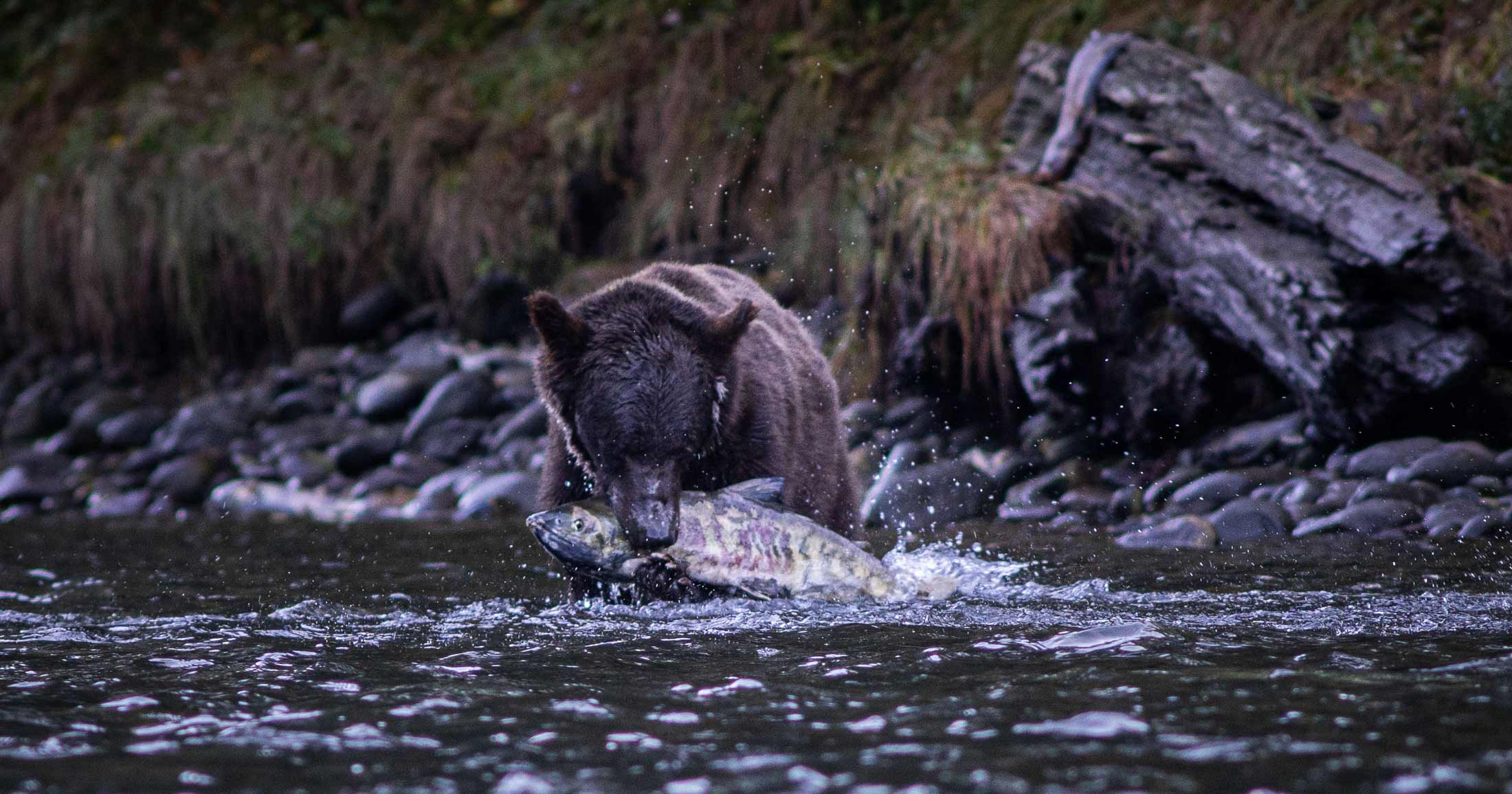Rethinking fisheries
Raincoast has long argued that ocean fisheries removing “yields” of intercepted salmon on migration routes are not sustainable into the future.
In 2024 we pushed for change in commercial and recreational fisheries management, domestically and abroad. At home, we have been leading a process that brings fishermen, governments, and rights-holders together to identify the fate of “catch-and-release” fish. Some percentage of these releases result in dead fish, but determining that number, and incorporating it into sustainable fisheries management, is challenging. Look for our recommendations on “fisheries-related incidental mortality” in the new year.
Ask an old time fisherman about Chinook salmon today and they will tell you stories about the size of these fish in the past. Nowadays, Chinook are much younger and smaller than a century ago. While several factors are at play, one reason for this is ocean fishing. Unlike other salmon, Chinook can feed and grow in local waters where they can be caught while they are still growing, sometimes years before they would migrate home. However, moving fisheries from the ocean to rivers can allow big, old Chinook to recover. An increase in their size benefits the fish, terminal fishers, and hungry killer whales that eat Chinook.
In September, along with our SkeenaWild and Watershed Watch partners, we made our final arguments to a UK-based adjudicator for why the wild salmon fishery of southeast Alaska should not be re-certified by the Marine Stewardship Council as “sustainable.” While our objection was dismissed, we will continue to challenge Alaska’s unsustainable fisheries that impact BC salmon and Southern Resident killer whales.
You can help
Raincoast’s in-house scientists, collaborating graduate students, postdoctoral fellows, and professors make us unique among conservation groups. We work with First Nations, academic institutions, government, and other NGOs to build support and inform decisions that protect aquatic and terrestrial ecosystems, and the wildlife that depend on them. We conduct ethically applied, process-oriented, and hypothesis-driven research that has immediate and relevant utility for conservation deliberations and the collective body of scientific knowledge.
We investigate to understand coastal species and processes. We inform by bringing science to decision-makers and communities. We inspire action to protect wildlife and wildlife habitats.


